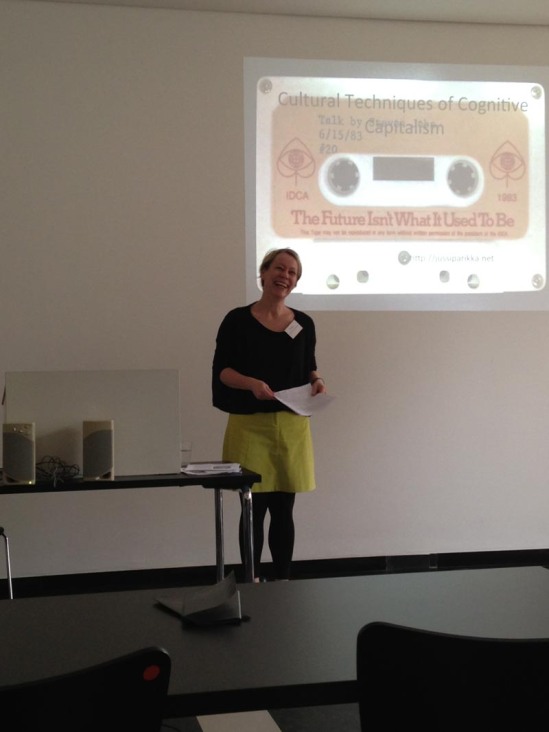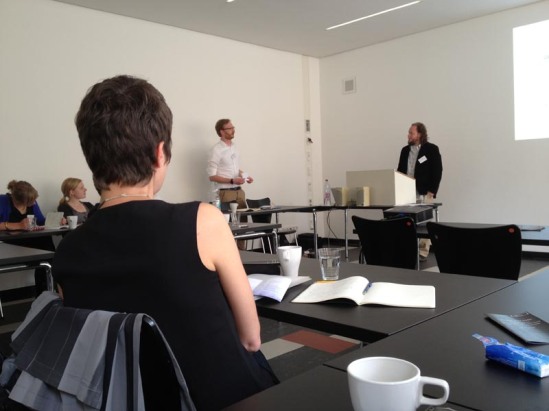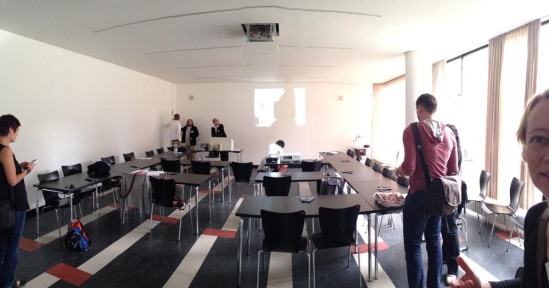Here are some images from our symposium “Imagining Media Change,” which took place on June 13, 2013:
Above, Ruth Mayer opening the symposium with some nice words of welcome.
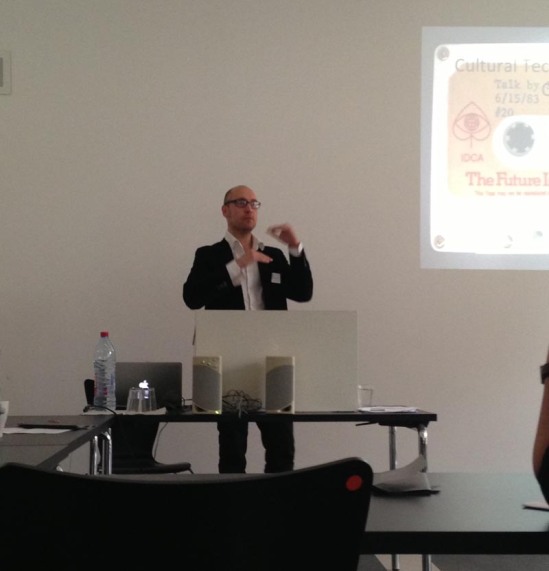 Jussi Parikka talking about “Cultural Techniques of Cognitive Capitalism: On Change and Recurrence” in his wonderful opening keynote.
Jussi Parikka talking about “Cultural Techniques of Cognitive Capitalism: On Change and Recurrence” in his wonderful opening keynote.
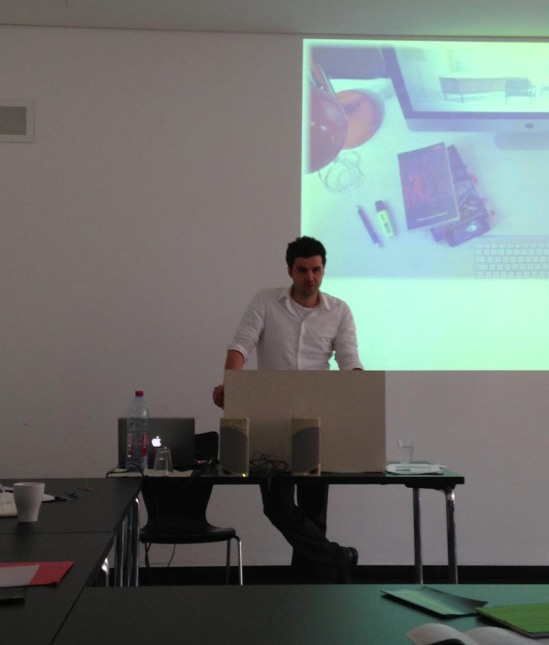 Florian Groß delivering his talk “The Only Constant is Change: American Television and Media Change Revisited” — with examples from Mad Men.
Florian Groß delivering his talk “The Only Constant is Change: American Television and Media Change Revisited” — with examples from Mad Men.
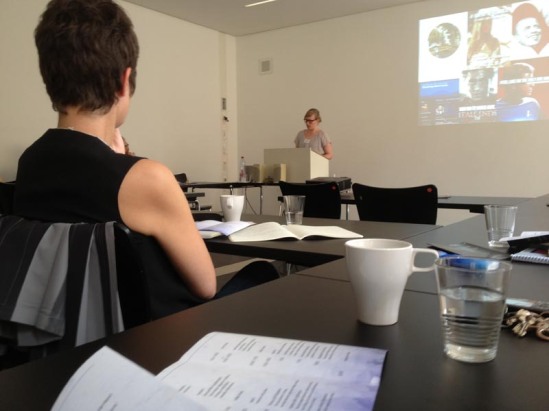 Bettina Soller on hypertext and fanfic in her talk “How We Imagined Electronic Literature and Who Died: Looking at Fan Fiction to See What Became of the Future of Writing”.
Bettina Soller on hypertext and fanfic in her talk “How We Imagined Electronic Literature and Who Died: Looking at Fan Fiction to See What Became of the Future of Writing”.
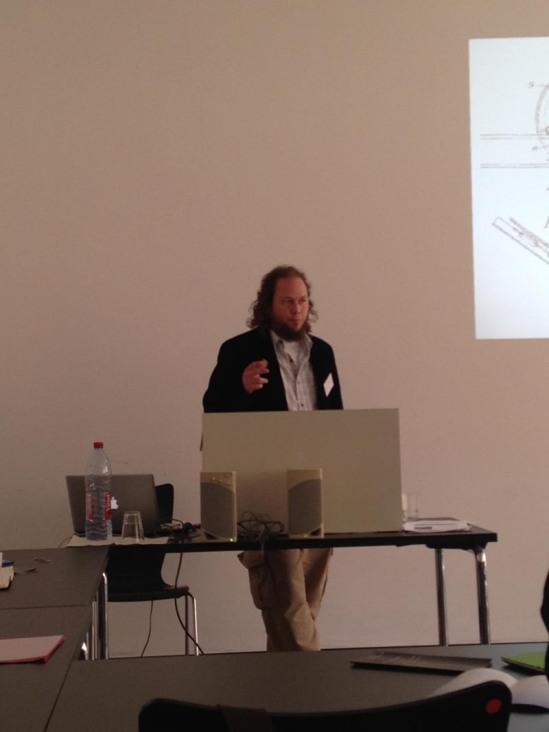 Me, Shane Denson, on escalators and “On NOT Imagining Media Change”.
Me, Shane Denson, on escalators and “On NOT Imagining Media Change”.
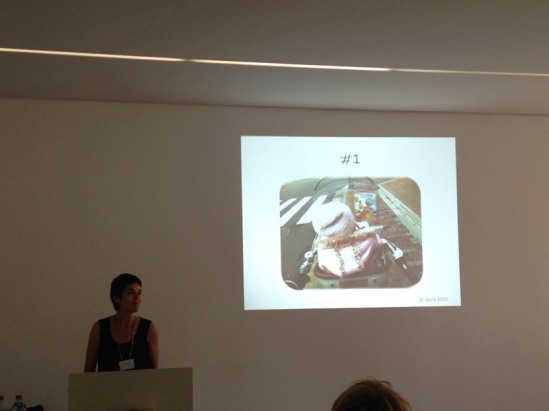 Wanda Strauven delivering the second keynote, “Pretend (&) Play: Children as Media Archaeologists” — a lively talk with great examples!
Wanda Strauven delivering the second keynote, “Pretend (&) Play: Children as Media Archaeologists” — a lively talk with great examples!
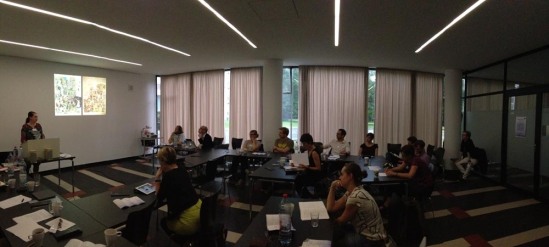 Christina Meyer talking about the Yellow Kid and “Technology – Economy – Mediality: Nineteenth Century American Newspaper Comics”.
Christina Meyer talking about the Yellow Kid and “Technology – Economy – Mediality: Nineteenth Century American Newspaper Comics”.
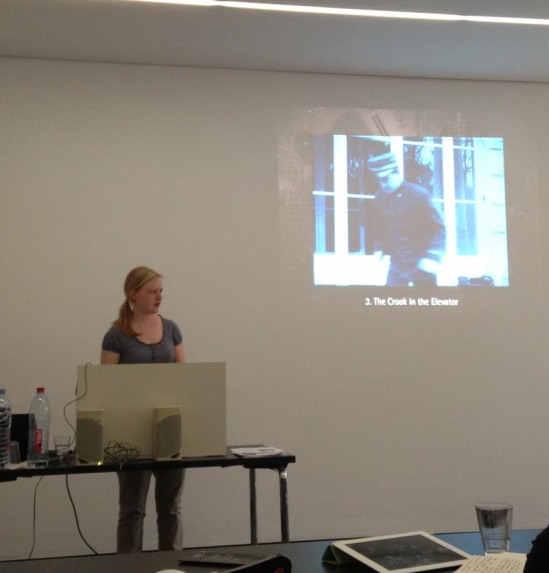 Ilka Brasch talking about early film serials and “Facilitating Media Change: The Operational Aesthetic as a Receptive Mode”.
Ilka Brasch talking about early film serials and “Facilitating Media Change: The Operational Aesthetic as a Receptive Mode”.
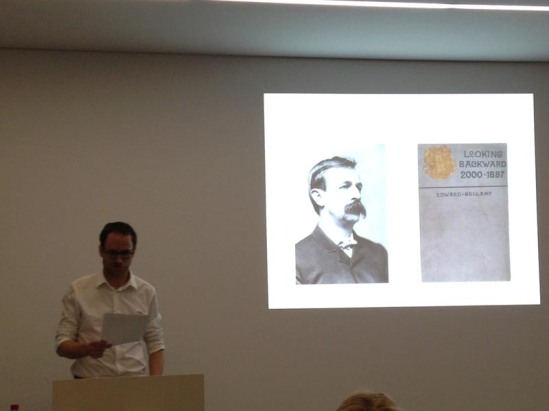 Alexander Starre wrapping up the symposium with an excellent talk on “Evolving Technologies, Enduring Media: Material Irony in Octave Uzanne’s ‘The End of Books’”.
Alexander Starre wrapping up the symposium with an excellent talk on “Evolving Technologies, Enduring Media: Material Irony in Octave Uzanne’s ‘The End of Books’”.
And finally, here are a few more random pictures:
